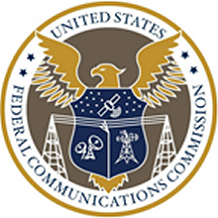Advertisement
|
FCC Report & Order Authorizes Geo-Targeting for FM
| RADIO ONLINE | Tuesday, April 2, 2024 | 3:25pm CT |





|
 |
The FCC has adopted a significant change to its regulations, enabling FM booster stations to originate programming through a process known as geo-targeting. This decision comes after the Commission explored the potential of allowing FM and Low Power FM (LPFM) broadcasters to use booster stations for originating content on a limited basis. The move is aimed at enhancing the broadcasters' ability to provide hyper-local content, including local news, weather, traffic updates and targeted advertisements within specific areas of their broadcast range, marking a historic moment in the broadcasting industry's 100-year history.
GeoBroadcast Solutions (GBS), a pioneer in developing technology that facilitates this capability, has been instrumental in pushing for these changes. The technology designed by GBS allows FM broadcasters to offer geo-targeted content without causing harmful co-channel interference, a concern that had previously been raised. The FCC's decision opens up new avenues for FM broadcasters to connect with their audiences on a more personal and community-centric level, mirroring the targeted content delivery capabilities of digital, TV and print media.
This rule change is timely, addressing challenges faced by the radio industry, such as declining advertising revenues and a competitive digital landscape. By adopting GBS's ZoneCasting technology, FM broadcasters can now attract advertisers looking to place hyper-local ads, potentially revitalizing the medium and introducing new revenue opportunities. The approval has been met with mixed reactions; while many see it as a step forward for localism, diversity, and competition, concerns about possible technical issues like co-channel interference and its impact on Emergency Alert Systems (EAS) and digital broadcasts were also voiced.
Despite these challenges, the FCC's decision reflects a broader consensus on the value of geo-targeted content and its implications for localism and community engagement in broadcasting. The rule adoption, subject to further rulemaking on specific implementation details, is a significant milestone for the radio industry, equipping it to compete more effectively with modern digital platforms. GeoBroadcast Solutions, along with supporters from various sectors including small and minority-owned stations, educational bodies, and industry leaders, views this as a transformative moment for radio, heralding a new era of innovation and connection.
"EMF's comprehensive comments on our proposal have been crucial," stated a spokesperson for GBS. "We are deeply appreciative of their participation and the collective dedication to innovation within the broadcasting industry, demonstrating the united effort to propel our sector forward."
"We commend the leadership of Commissioners Geoffrey Starks, Brendan Carr, Chairwoman Rosenworcel, and the broad community of industry leaders, civil rights groups, and broadcasters who championed this issue and saw its potential to empower broadcasters to better serve their communities," said a GBS spokesperson.
Advertisement
|
Latest Radio Stories
Chaz & AJ Return to Long Island on 94.3 The Shark
|
NAB Launches Campaign for America's 250th Anniversary
|
Curtis Sliwa Joins WOR Morning Lineup in New York
|
Advertisement
|
2026 NAB Crystal Radio Award Winners Announced
|
Nielsen DMA Data Added to Magellan AI
|
CRS Honors to Reveal Hall of Fame, ACM Radio Winners
|

















